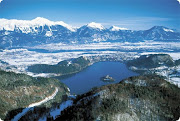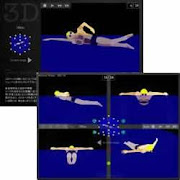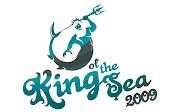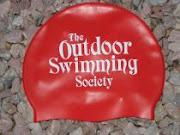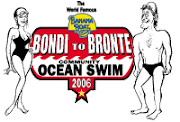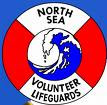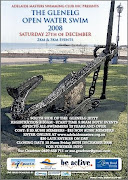 Open water swimmers often discuss, debate and experiment with different gel packs and drinks before determining what works best for them.
Open water swimmers often discuss, debate and experiment with different gel packs and drinks before determining what works best for them. Then, there are discussions as to when to drink or eat during a race or solo swim (see gel pack in Chloe Sutton's technical swimsuit on left).
Various research projects have previously found that ingestion of a mixture of glucose and fructose from carbohydrate drinks during exercise leads to a 20-50% higher carbohydrate oxidation rate as compared to taking glucose alone. However, many open water swimmers also take carbohydrates in the forms of gels during their race.
Asker Jeukendrup of the University of Birmingham in the UK and Beate Pfeiffer of the Nestle Research Center in Lausanne, Switzerland conducted a formal research project in which they compared the carbohydrate oxidation between carbohydrate gels and drinks during cycling exercise. Although this was a land-based study with non-swimmers, due to the length of the exercise (3 hours), we thought the findings were interesting for open water swimmers.
Eight well-trained cyclists (average age: 34) performed three exercise trials in random order. The trials consisted of cycling at 59% of their VO2 max for 3 hours while taking one of the following three options: a gel pack plus plain water, a drink or plain water. Both the carbohydrate gel and drink included glucose and fructose in a ratio of 2:1.
The exogenous carbohydrate oxidation from both the gel and the drink showed a similar time course with the peak exogenous carbohydrate oxidation rates both achieved at the end of the 3-hour exercise. Furthermore, the peak exogenous carbohydrate oxidation rates - and the oxidation efficiencies - were the same between the gel pack and the drink.
As a result, they concluded that a glucose + fructose mixture is equivalently utilized whether the cyclist took a gel pack or a liquid drink.
This fundamental information is good to know while deciding what fuels and drinks you use in your training and 10K races and above.
But, as many marathon swimmers know well, sometimes liquid drinks (hot or cold) hit the spot - and sometimes solid or semi-solid foods provide a great psychological boost at a time when one's body is being taxed to its limit by cold water, a fast pace or a marathon distance.




